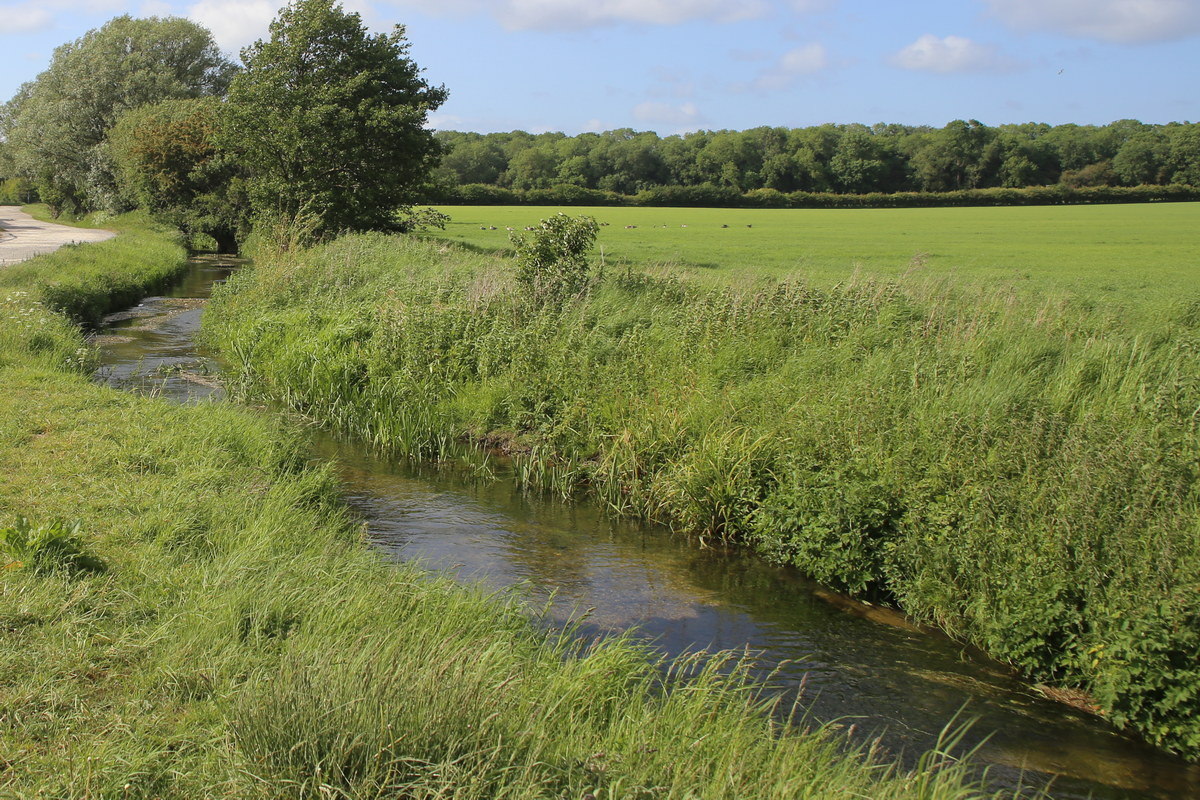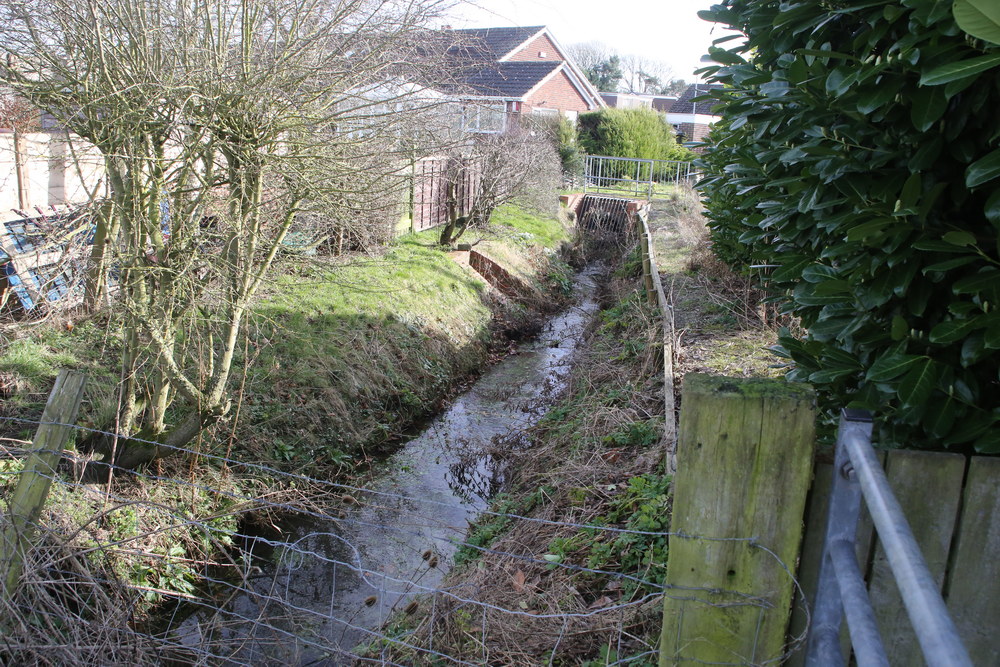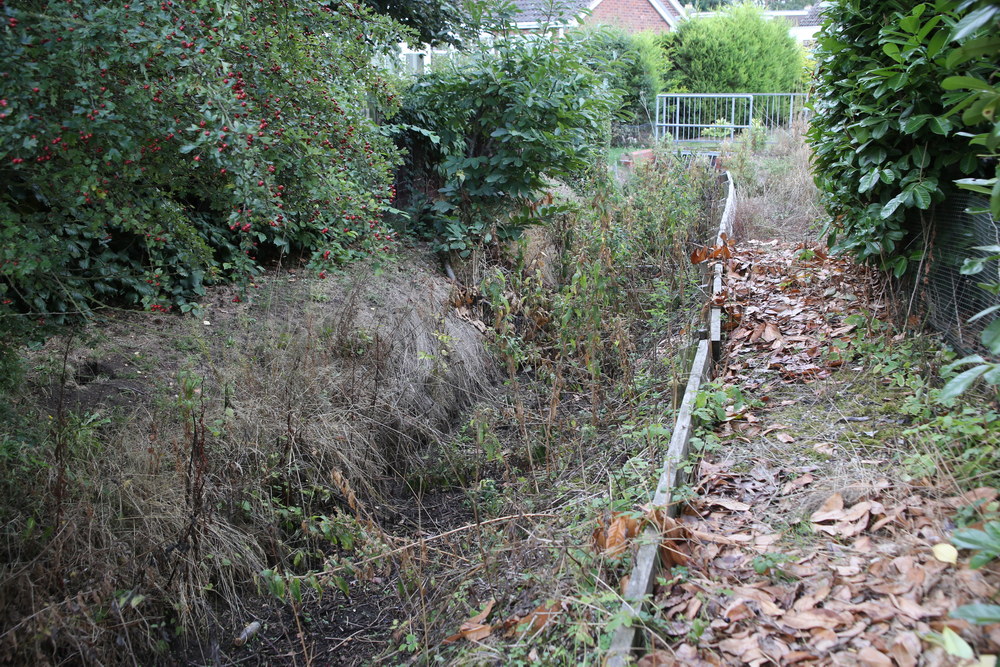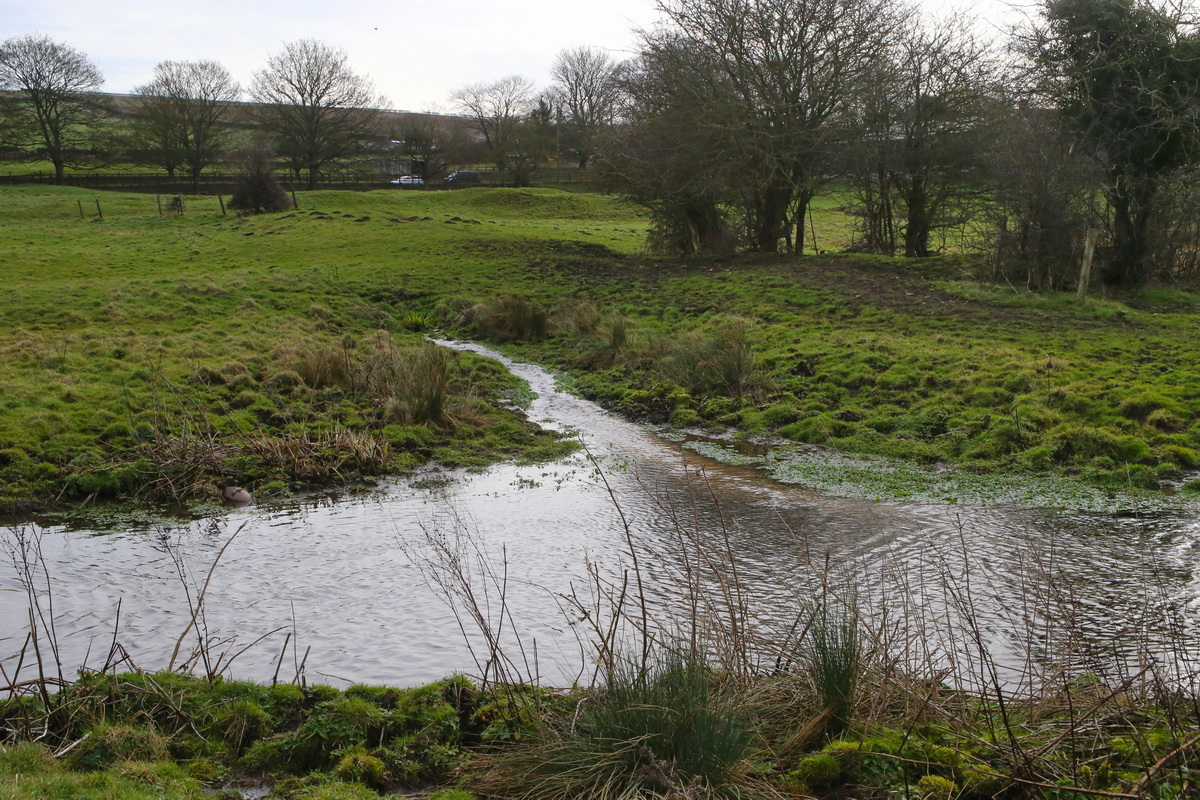Chalk Streams
October 2022
One of the great things about working on WWSTF is that there is so much to learn; and working with experts from various agencies and organisations, there are many people to learn from.
We have often said that WWSTF is all about the chalk streams in our little catchment, which runs from Newbald, through Hotham, North Cave, South Cave and Ellerker.

But on a tour of the catchment with a couple of colleagues from the Environment Agency a few weeks ago, we learned that it is not quite so simple. The streams that emerge as springs from the chalk are obviously chalk streams - examples include Ings Beck in Newbald (which becomes Hotham and then North Cave Beck), Drewton Beck which runs into North Cave, South Cave Beck and Ellerker Beck. But not all becks and watercourses in our area arise from chalk springs.
Winterbourne
When we went to look at Ferry Beck, at the back of West End, South Cave, it was completely dry, unlike all the other becks we had seen during the day, which had been running strongly, despite the prolonged drought. I was surprised, but my EA colleague pointed out that it is not a chalk stream: it drains the land from around South Cave golf course and south of Everthorpe and, although it has caused flooding in the past, equally it can dry out when there is no rain.
 Ferry Beck in winter
Ferry Beck in winter
 Ferry Beck in late summer
Ferry Beck in late summer
The same is true of Littlemoor Drain. When we took North Cave School pupils to see it in the spring, across the road from their school gates, they were excited to see the water skaters on its surface. Two weeks ago it was dry.
Similarly, the chalk stream that runs down Little Wold Lane, to join South Cave beck, is 'winterbourne' - which means that although it can run steadily and well during the winter, it does dry out in the summer, if the water table drops below the base of the stream. So, although all of these short-lived becks and drains have a value for wildlife, as well as their drainage function, it is limited by the fact that species which need water all year round (such as fish and many others) are not going to survive in them.
Why Chalk matters
Which brings us back to chalk streams. Because they are fed by water from the chalk aquifer, they are very much more constant than 'ordinary' streams. They start off clear and clean, because they are filtered by the chalk. Their rate of flow, mineral content and temperature of the water is much steadier throughout the year than that of other watercourses. These properties make them rich in insect, fish and plant life, provided they are not polluted and they do not suffer too much from water abstraction or land drainage. No wonder then, that they are regarded as the UK's "unique contribution to global ecology".

Our East Yorkshire chalk streams are some of the best in the UK. The becks that run so constantly through our villages are vitally important habitats. Whilst we try to plan and protect ourselves from the worst effects of flooding, we should also be very aware of their beauty, importance and fragility, and realise how lucky we are to have a ‘unique contribution to global ecology’ running right through our villages.
The other great experts on our becks are, of course, those people who live and work around them. You know about their wildlife, when they are healthy and when they are not, how they flow, and when they are a problem. We would love you to share what you have seen and what you know, so do get in touch.